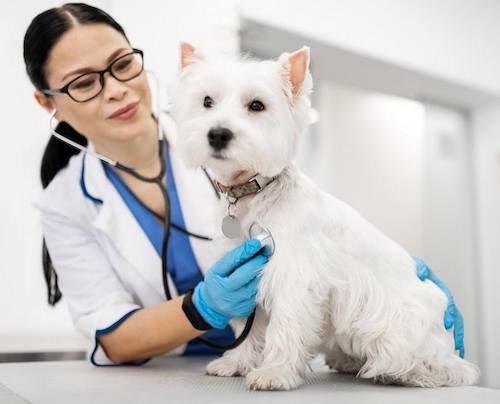Dog Aggression and Your Veterinarian, Their Role in Treatment
Average Reading Time: 1 minute, 29 seconds
Dog Aggression and Your Veterinarian, Their Role in Treatment
© Scott Sheaffer, CBCC-KA, CDBC, CPDT-KA, USA Dog Behavior, LLC
“In terms of behavioral treatment, your vet can play a role.”
Understanding the role your veterinarian plays in managing and treating your dog's behavioral issues is crucial for every pet owner. In our recent podcast episode, Scott Sheaffer, a certified dog behavior expert, provides valuable insights into this under-explored area.
Scott enlightens us about the importance of clear communication with your vet. Effective communication is crucial in the successful management and treatment of your dog's behavioral issues. This not only includes discussing your dog's physical health but also any changes in behavior that you might have observed. Remember, physical issues can sometimes manifest as behavioral changes in dogs.
One of the main points discussed in this episode is the importance of teamwork in managing and treating your dog's behavioral issues. It's not all about medication - behavior modification exercises play the most significant role. This involves you, the vet, and a behavior consultant working together to create a comprehensive treatment plan.
In this podcast, we explore the possibility of seeking second opinions in some instances and how it can aid in your dog's treatment plan. A second opinion can provide a fresh perspective or confirm the original diagnosis and treatment plan, thereby providing reassurance.
Another significant aspect we touch on is how to tackle a visit to the vet with a fearful or aggressive dog. Navigating these situations can be challenging, but with the right advice and preparation, you can manage them effectively.
In terms of behavioral treatment, your vet can play a role. They can administer the necessary physical tests to rule out any physical problems causing the behavior issue. They can also adjust behavior medication dosages when required and provide information on the possible side effects of the behavioral medications your dog is taking.
Scott emphasizes that while medication is part of the treatment, it is not the total treatment. Behavioral medications should be used carefully and sparingly. Medications are meant to support the behavior modification and management exercises a behavior consultant provides.
This episode is a comprehensive resource for pet owners seeking to understand their dog's behavioral issues better. With the actionable insights and tips provided, you will be better equipped to manage these challenges and improve your dog's overall well-being.

